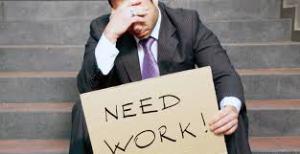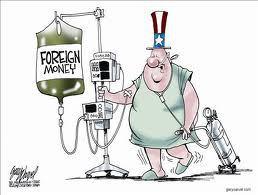 Harry Truman said that, and it’s relevant to the current debate over extending unemployment insurance (UI). The basic UI program is meant to tide people over during a bout of joblessness that’s assumed to be temporary – not as a welfare program for nonworking people (the “idle” as some newspaper headlines unfortunately call them). Thus benefits run for a set time and then stop.
Harry Truman said that, and it’s relevant to the current debate over extending unemployment insurance (UI). The basic UI program is meant to tide people over during a bout of joblessness that’s assumed to be temporary – not as a welfare program for nonworking people (the “idle” as some newspaper headlines unfortunately call them). Thus benefits run for a set time and then stop.
However, in recessions with high jobless rates, it’s become customary to extend UI for additional months. The extension that recently expired was the longest ever. Now Washington is debating a re-extension.
The logic of such extensions is actually hard to understand. Either UI is a welfare program or it’s not. This is the relevance of Truman’s quote.

Advocates of extending benefits argue that it boosts the economy and promotes job growth – because (even if opponents are right that UI makes recipients less keen to seek work) they will spend the money given them, and this spending will be stimulative, creating jobs to meet the added demand for goods and services. This too doesn’t quite make sense. After all, if government putting spending money in people’s pockets is economically beneficial, why limit it to just the unemployed?

Here is the fallacy. If you earn money, by creating goods and services that people pay for, and then you spend that money, raising demand for still other goods and services, that does boost the economy. That virtuous circle is economic growth that makes everyone richer. It’s not the same when government gives you money to spend by borrowing it from China (and since we still run large deficits, any added dollar of government spending is effectively borrowed).

That’s not to say we shouldn’t extend UI. But we should do it because it’s humane, and not kid ourselves that it’s somehow a way to bootstrap into prosperity. Prosperity only ultimately comes from people productively employed, producing things for which others willingly pay.
And our worsening problem in this regard has to be faced. The 7% headline unemployment rate is only the tip of an iceberg. It doesn’t reflect people underemployed, doesn’t count those not looking for work and, importantly, doesn’t count the huge and growing disability rolls (which I’ve written about). Their health, in too many cases, is not the issue; a recent NPR report highlighted how in practice “disability” benefits are often given to people because they’re just plain unemployable. The percentage of the population in productive work has been inexorably falling, not only due to those already mentioned factors, but additionally because we’re living longer and spending more years in retirement (while, at the other end, spending more years in school too).

